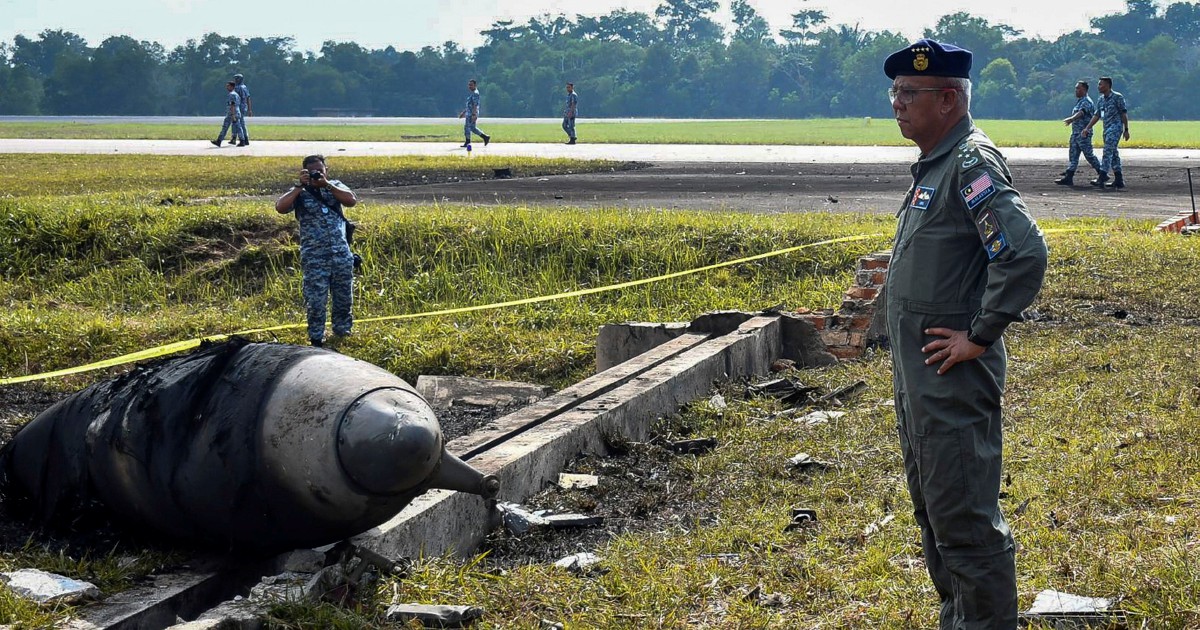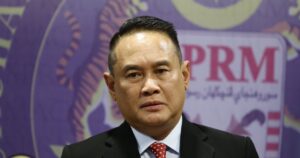THE tragic crash of an F/A-18D Hornet in Kuantan has once again placed Malaysia’s air capability under scrutiny.
The incident highlights an uncomfortable truth — the Royal Malaysian Air Force’s (RMAF) front-line fighters are ageing fast and the risks of relying on them are only increasing.
Malaysia’s combat aircraft inventory has been stretched for years. The Sukhoi Su-30MKM remains a capable platform but has faced long periods of grounding due to spare parts shortages and limited budgets.
The F/A-18D Hornets, acquired in the mid-1990s have been loyal workhorses, but after almost three decades of service, they are nearing the limits of their lifespan.
The proposed acquisition of second-hand Kuwaiti Hornets was seen as a temporary solution, buying time while Malaysia decides on a permanent replacement.
However, as echoed by Defence Minister Datuk Seri Mohamed Khaled Nordin, the nation can no longer delay in acquiring fifth-generation fighters if it wishes to remain credible in defending its sovereignty.
Too often, the debate around fighter aircraft comes down to price, with critics asking why billions must be spent on jets that the public rarely see in action.
The public do not always see that every day, RMAF tracks incursions and suspicious approaches into our airspace.
These interceptions and deterrence missions are rarely disclosed due to diplomatic sensitivities; instead they are carried out quietly and professionally.
The fact that Malaysians go about their daily lives without disruption is in no small part due to this “invisible” shield. Security, after all, is most effective when it is unnoticed.
The absence of credible air power invites not only challenges to territorial integrity but also risks destabilising economic activity that depends on secure air and maritime domains.
Defence should not be seen as competing with social spending but as complementing it — the secure environment in which education, healthcare and development can thrive.
Modernisation is about preserving sovereignty, protecting lives and ensuring Malaysia retains its strategic autonomy.
Most significantly and often overlooked is the human dimension, which is the most important asset of the country.
Fighter pilots are not just operators of machines but highly trained professionals whose development takes years and costs millions. We must protect these men and women who stand at the sharp end of our defence.
Defence policy, therefore, must be framed not as expenditure on equipment but as investment in the safety and effectiveness of our most valuable national assets, which are out people in uniform.
In Malaysia, defence debates are often politicised rather than treating it as a national imperative. Defence procurement risks becoming a casualty of shifting political priorities.
Thus, it is vital for the public to see defence modernisation not as a prestige project, but an insurance policy for our sovereignty.
Defence spending should be explained in the same terms as healthcare or disaster preparedness — as a public good that secures peace of mind, ensures stability and protects the nation’s developmental gains.
As much as citizens have the right to question priorities, it is important for them to also understand that security cannot be improvised in times of crisis.
Here, the role of the Defence Ministry and the government in large becomes imperative.
Too often, modernisation is discussed in highly technical terms. For the public, such language is inaccessible and alienating. Instead, policymakers can translate defence needs into narratives the public understands.
For instance, new aircraft are not prestige items but the shield that keeps intruders out of Malaysia’s skies.
Defence spending is not a drain but an insurance policy to protect lives, investments and the nation’s future and pilots are not just “aircrew” but Malaysia’s sons and daughters whose safety depends on reliable platforms.
The F/A-18D Hornet M45-07 served Malaysia faithfully for 28 years and the nation owes it gratitude.
But the most meaningful tribute is to ensure that the next generation of Malaysians in uniform is never asked to defend the country with tools that belong to the past. Therefore, modernisation must be treated as the nation’s most important insurance policy. Public understanding, transparent communication and political resolve are the foundations of this process.
Without them, Malaysia risks not only its skies but also its sovereignty.
The writer is Deputy Dean (Research and Postgraduate), Faculty of Defence Studies and Management, National Defence University Malaysia
© New Straits Times Press (M) Bhd





